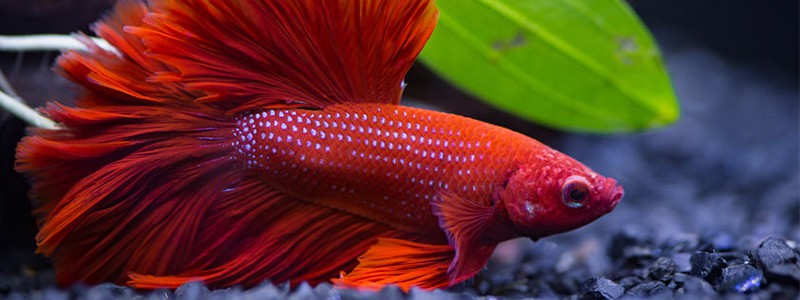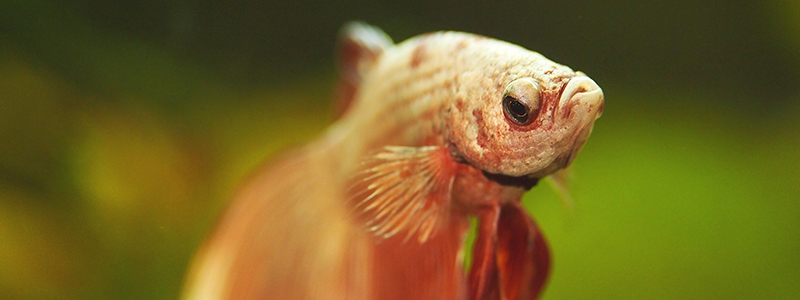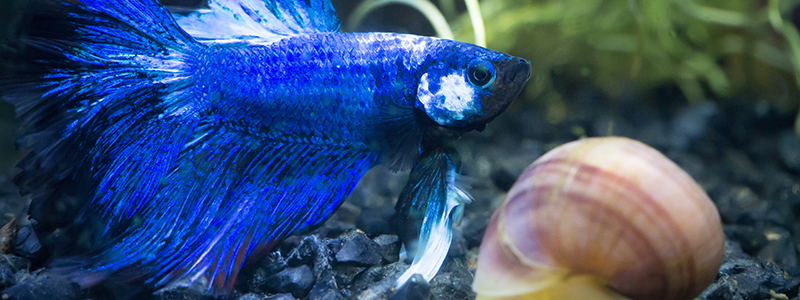Keeping a betta fish is a wonderful hobby that helps enhance your home with the natural beauty of an aquatic environment. You are probably wondering how long can a betta fish live? Well, when taken care of properly you can look forward to your betta staying with you for years.
How long can a betta fish live? A betta fish that is properly cared for lives for an average of 3 to 5 years. There are many important aspects you will need to consider when keeping your betta healthy. They need to be in a proper environment, fed, cleaned, and checked on daily.
Below we are going to go over the information you need to know in order to provide a proper life for your betta. Following these simple tips will enhance the life of your fish and keep them stress-free. You will also learn what common ailments to watch out for.
How Long Can a Betta Fish Live?
The average life span of a betta fish is three years, with well-kept bettas living up to 5 years. Many owners are told the basics of keeping bettas; for instance, don’t keep two bettas together. Other than that, many of the betta’s requirements are misjudged and miscommunicated in the pet stores where the breed of fish is commonly sold.
Even products made specifically for betta fish don’t always meet the needs of the breed. Often, betta fish are even over or underfed leading to stress. Stress is one of the top reasons betta fish can start to experience health problems that can become fatal to your fish. Some things that are required to have a happy, healthy betta are:
- Properly Sized Tank with Hiding Spots
- A Balanced Diet
- Proper Cleaning Habits
- Knowledge of Betta Illnesses
By understanding these four parts of betta fish care, you can help to extend your fish’s life. Unlike many popular brands may lead you to believe, just sticking your fish in a vase with a plant isn’t going to keep your fish alive for years. Below are in-depth tips to help keep your betta fish thriving for years to come.
1. Create a Proper Habitat
Betta fish come from Asian countries such as Thailand and Malaysia, where they tend to live in near rice paddBietBes. Because of their original location betta fish are used to warm environments where they can hide in plant roots. To successfully increase the lifespan of bettas, you will need to create a tank with enough space, hiding spaces, and the proper water temperature.
Many pet stores will try to sell you a small, but trendy looking set-up for your betta. Often time this will come with a vase and a plant that the betta supposedly eats on. These vases can’t sustain bettas for long periods of time and most importantly they don’t eat the plant.
For starters, the vases don’t provide the oxygen or warmth bettas needs to live comfortably. The vases are often small with less than a gallon of water, giving the fish very little room to move around. Other options will be small tanks or cute looking castles that have no filtration system.
Picking Your Tank
To start, choose a proper tank that is at a minimum of 2.5-gallons in size. Anything smaller than this doesn’t provide adequate swimming room for the fish. For an even better habitat, you can use a 5-gallon tank or go for the maximum recommended size of 5-gallons for your betta. Make sure to pick a tank that a heater can be easily attached to.
Once you set your tank up, you need to add in hiding spots such as decorations or fake plants. This provides your betta with a place to feel safe when resting. Live plants are recommended from the betta’s natural habitat when available. With this, you will want to put in a low flow filter and a heater to keep the water at a proper 75 degrees. A betta fish can survive in colder temperature, but they will take a toll on the overall health of the fish.
2. Manage Feeding Time
Betta fish do not eat plants or roots; you cannot feed a betta fish by just adding a plant to their environment. Bettas when kept with a plant may end up picking at it, but even when consumed plants have no nutritional value to the fish. In fact, betta fish are insectivores that find themselves praying on bugs and their larva in the wild. They will also seek out small, smaller aquatic life to eat when available.
In captivity, Betta fish have a much more limited diet. Many fish stores sell pellets that are rich in protein. These pellets should be fed to your betta once a day. Betta fish are prone to gorging themselves even when they feel full. To keep from overfeeding your fish only feed them three pellets a day. This may seem like a small amount, but keep in mind that the stomach of a betta fish is equivalent to the size of their eyeball.
Avoiding Common Feeding Issues
When feeding your betta, make sure to lure them to a spot away from the filter. Bettas prefer to eat floating food and won’t consume pellets that have sunken to the bottom of the tank. If you have bought blood worms or brine shrimp for your betta, make sure only to provide them as a treat. Overfeeding pet fish these protein-rich foods can lead to obesity. Never let your betta fish consume bugs that have fallen into their tank, they may have pesticides. Only properly vetted insects can be fed to a captive fish.
Bettas who aren’t fed enough or are overfed, will be stressed. Many first-time owners have been advised only to feed their fish once a week if they have a root plant in the tank. This has led to many fatal issues for betta fish that could have quickly been resolved by proper knowledge.
3. Clean Your Betta Fish’s Environment
All types of issues can and will appear when a fish’s tank isn’t properly maintained. While bettas may be hardy fish, they can’t survive in bacteria-ridden environments forever. Even tanks with filters need to be changed regularly, as well as; spot cleaned weekly to get out excess food. How many times a month you will have to do a water change will vary by your tank size, filter type, and the individual betta fish needs.
When you do change your betta fish’s water, make sure only to change no more than 50% of the water at a time. A full water change gets rid of the good bacteria in the tank and can unbalance your tanks ecosystem. Always make sure to treat any new water with conditioner to eliminate any harmful additives your water may be hiding. It’s best to purchase spring water to avoid the chlorine levels found in city tap water. High chlorine levels can be fatal even when treated with water conditioner.
Cleaning should consist of using your net to remove extra food pellets. A build-up of rotting food can result in rising ammonia levels. Improper cleaning can also lead to a rise in fungi, algae, and mold growth in your tank. You will need to check on live plants weekly, rotting plants can be another common source that affects water quality.
4. Look Out for Common Health Ailments
There are a few common health ailments that can affect your betta. Many of these health complications are the reason for shortened lifespans. These ailments are mostly treatable if caught within a short period of time. Most diseases are easily preventable with proper knowledge. For example; constipation comes about from overfeeding and can be cured simply by not feeding your fish for a few days.
Common Ailments
Ich: Ich is the most common disease seen in betta fish. Ich is a parasite that appears as small white spots all over your fish’s body. These tiny spots are cysts that have baby parasites growing within them. This parasite can quickly be dealt with by merely raising your water temperature and picking up a bottle of Ich medicine from your local pet supply store. Ich most commonly comes about when you add an infected fish into your betta’s environment
Swim Bladder: Swim Bladder is an infection that causes your betta to float to the top of the tank. This infection is commonly caused by not caring for your tanks water quality. Poor water quality allows bacteria to grow and then infect your fish’s body. This disease can be fatal when not caught in the early stages and will need fish antibiotics to cure, along with a hospital tank with shallow water. Swim Bladder is prevented by proper care of your tank’s water.
Fungal Infection: Fungal infections often regularly show up that eat away at the slimy coating that covers your betta. This disease can be recognized by what looks like cotton starting to coat your fish’s scales. To cure fungal infections, you will need to use a fish-safe fungi killer in your water. Fungi infections can also be avoided by proper tank maintenance.





